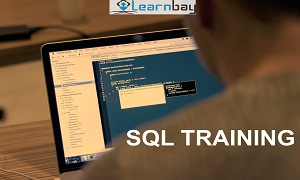Course description
Learnbay Provides best SQL training in Bangalore.Our course includes the SQL/Database concept from basic to advance level.Our course content is designed by experts to match with the real world requirements for both beginner and advance level.Many real world problems are implemented and discussed in the class with tons of assignments for practice.If you are looking for SQL training in Bangalore,learnbay is the best option.
This course will benefit you to perform your programming jobs better and also help you to get to better positions, with confidence, in case you are looking out for jobs.This course will help you to to handle interview with more confidence.
Who Should Attend:
Those who want to become master in PL/SQL.
Those whose want to improve his Skill in Database/SQL.
Freshers/Experienced Professional
Course delivery:
Online And Classroom SQL ,DBA ,Oracle training in bangalore
classes with 60% theory and 40% hands on,Practice ,Assignment.
Course Content:
1. Introduction to SQL Server and RDBMS
Covers an overview of using relational databases. You’ll learn basic terminology used in future modules
2. SQL Server Tools overview
SQL Server Management Studio is the primary tool used to create queries and manage objects in SQL Server databases
3. Single Table Queries
Retrieve data from a single table and craft the result set by filtering rows and columns using the SELECT and WHERE clauses. We also cover using ORDER BY to sort the results.Keywords like Select, Distinct, Where, And & Or,Order By etc.
4. Keys & Constraints
Types of keys and constraints we can have a tables and their purpose.keywords like unique,primary ,foreign keys
5. Multi Table Queries
To pull in data from multiple tables in your query. We will learn how to use INNER, SELF, CROSS, and OUTER joins as well as UNIONs,Keywords like Inner Join, Left Join, Right Join, Full Join, Union and MANY MORE…..
6. Data Types
We cover what SQL Server has to offer when it comes to storing different types of data. We cover major types that store text, dates, numbers and also look briefly at specialty types,Integer, Char, Varchar, nChar etc
7. Working with built-in functions
You’ll become acquainted with many of the built-in functions available in SQL Server.Keywords like Avg(),Count(), First(), Last(), Max(), Min(), Sum() and MANY More..
8. Summarizing Data
Cover aggregate functions which let you easily compute things like averages and totals over groups of rows,GROUP BY, HAVING, ROLL UP, CUBE etc..
9. Modifying Data And Creating Tables, Views and Database
We delve into the details of inserting, updating, and deleting data,
Commands to create Tables, Views and Databases and few shortcuts & technoques
10. Corelated Sub Queries
Sub queries are a powerful tool for solving difficult problems. In this session, we cover how they work and where you can use them.We look at the various types of user defined functions available in SQL Server, how to use them, and how they compare to stored procedures.
11. User Defined Functions
We look at the various types of user-defined functions available in SQL Server, how to use them, and how they compare to stored procedures.
12. Working with Stored Procedures
We begin by writing simple stored procs and proceed to more complex procs that incorporate data validation and checking
13. T-SQL
Cover the procedural extensions to the SQL language that allow you to work with variables, control structures, and error handlers
14. Introduction to Triggers and Cursors
Introduction to Triggers and Cursors,Advanced SQL Queries for Analytics ,Merge, Dense Rank, Rank, Partition etc
Advance Topics
15. Writing dynamic Queries in SQL
Writing dynamic Queries in SQL,Pivot tables in SQL Server Pivot tables in SQL Server
16. Pivot tables in SQL Server
Pivot tables in SQL Server
17. Working with Views, CTE
The common table expression (CTE) is a temporary result set that you can reference within a SELECT, INSERT, UPDATE, or DELETE statement and
18. Hierarchical Queries in SQL Server
Manage data’s with hierarchical relation or parent-child relation of a specific table in SQL server
19. SQL Server Locks and Transactions
To handle conflicts by wrapping action statements inside a transaction and controlling how aggressively SQL Server goes about locking data
20. SQL Server and XML
Learn about SQL Server’s XML data type and how XML schemas are used to validate XML data
21. Advanced SQL Queries for Analytics
22. Database Security Basics
SQL SERVER PERFORMANCE TUNING AND QUERY OPTIMIZATION
23. Efficient Database design
Knowing the way SQL Server platform works; knowing this can give you better long-term scalability, availability, and performance. Choosing the right data types when you’re designing your columns, tables, and indexes is really critical
24. Performance Tuning Tools
About various SQL server performance tuning tools.
25. Understanding and Analyzing Execution Plan
Understand and interpret query plans so you can pinpoint performance problems. The course starts by explaining the various methods of capturing query plans for later analysis.
26. Indexing Basics
Indexes are the most crucial objects of the database. They are the first stop for any DBA and Developer when it is about performance tuning.
27. SQL Server Interview questions and answers



Aman raghav – :
.